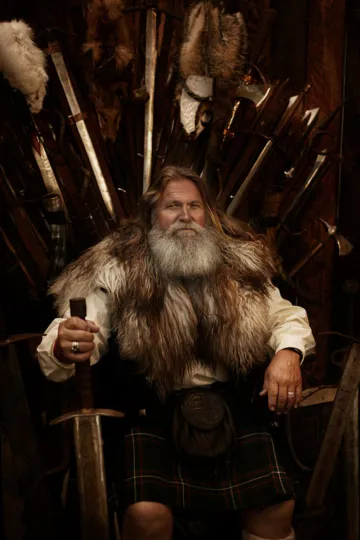
Viking Blood in the Blue Ridge?
The Appalachian-Norse Connection You Never Knew You Needed
When you hear the word “Viking,” your brain probably jumps to snow-covered fjords, longships, and Norse gods with unpronounceable names. North Carolina? Not exactly the first place that comes to mind. But maybe it should be.
Because tucked away in the misty ridges of the Appalachian Mountains lies a culture that, intentionally or not, carries echoes of the old Norse world. And if you dig a little deeper, you’ll find that the Viking spirit didn’t die in Scandinavia. It just moved to the mountains.
A Quick Look at the History
The mountains of western NC were primarily settled by Scots-Irish immigrants in the 1700s. These folks were rugged, self-reliant, and not afraid of hard living. Sound familiar?
But before they became “Scots-Irish,” many of their ancestors came from Scandinavia. During the Viking Age (roughly 800-1100 AD), Norse raiders and settlers spread across the British Isles, mixing with local populations. When those populations later migrated to North America, they brought more than just their Bibles and flintlocks. They brought the DNA, traditions, and stubborn grit of Viking stock.
Similar Land, Similar Lives
Vikings thrived in harsh, mountainous terrain. They fished, farmed, hunted, and forged tools by hand. Now look around Appalachia: isolated homesteads, tight-knit communities, a deep connection to the land, and a way of life built on doing things yourself.
Still not convinced?
-The Norse built using timber framing. So did App settlers
-Viking smiths forged tools in small, family-run forges. Sound familiar?
-Storytelling was sacred to the Vikings. In the mountains, so are tall tales, folk songs, and front porch legends.
Sure, they may have traded horned helmets for ball caps and mead for moonshine, but the essence remains.
The Warrior Ethos Never Left
There’s also a cultural toughness that runs deep in both worlds.
Vikings didn’t cry (we know that of course). They endured. Western North Carolinians don’t cry either. They adapt. We saw that during Helene.
Both cultures prize resilience. Both value family and loyalty. And both are steeped in the belief that you don’t wait around for life to happen. You forge it yourself.
The Legacy Lives On
So maybe Vikings didn’t land their longships on the coast of Carolina. But their descendants built cabins in the hollers, forged knives by firelight, and told stories that made men feel immortal.
And today, when someone steps into our forge and leaves with a blade they made themselves, something clicks: the bloodline isn’t about genetics, it’s about grit.
Vikings Don’t Cry. They forge.